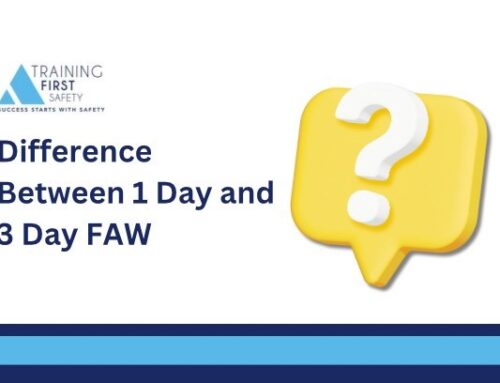The Dilemma of Misleading Claims: A Closer Look at Industry Practices
Within the health and safety training sector in the UK, the issue of misleading claims has become a significant concern for both individuals seeking training and businesses striving for compliance. Unfortunately, instances abound where trainers and providers fail to uphold their promises, leading to a critical gap between expectation and reality.
Impact on Customer Safety and Legal Compliance
When health and safety trainers fall short of delivering on their commitments, the repercussions can be severe. Customers who rely on these training programs to safeguard their workplaces and employees are left vulnerable to a range of risks, including accidents and legal liabilities. This breach of trust not only undermines the credibility of the provider but also jeopardizes the safety of those under their duty of care.
Unveiling the ‘Bespoke’ Deception
We recently spoke with a training company who falsely advertised a course to us as ‘bespoke’ when, in truth, it lacked the tailored approach that defines bespoke training. This deceptive practice sheds light on the prevalence of misrepresentation within the health and safety training landscape, raising concerns about the authenticity and integrity of training offerings.
Understanding Bespoke Training: What It Truly Means
Bespoke training stands as a hallmark of personalised learning experiences crafted to meet the unique needs and challenges of individuals or organisations. Unlike generic, one-size-fits-all training courses, bespoke training is meticulously tailored to address specific requirements, industry nuances, and organisational goals. It involves a collaborative process between the trainer and the client to create a training programme that aligns precisely with the client’s objectives and circumstances.
Addressing the Root Cause
The misalignment between advertised promises and actual delivery highlights a deeper issue within the industry – the lack of accountability and transparency. By failing to provide genuinely bespoke training experiences, providers not only mislead their clients but also contribute to a culture of confusion and mistrust.
The Call for Ethical Standards
As advocates for safety and professionalism, it is imperative for health and safety training providers to adhere to ethical standards and deliver on their commitments. Transparency, honesty, and accuracy should form the foundation of every training program, ensuring that customers receive the quality of training they rightfully expect.
Moving Towards a Solution
By acknowledging and addressing the challenges posed by misleading claims and misrepresentation, the industry can take significant strides towards fostering a culture of integrity and accountability. Through open communication, clear expectations, and a commitment to delivering authentic training experiences, providers can rebuild trust and empower clients to make informed decisions that prioritize safety and compliance.
In conclusion, the prevalence of misleading claims underscores the urgent need for a paradigm shift towards transparency and ethical practices within the health and safety training industry. By confronting these challenges head-on and committing to genuine, tailored training solutions, providers can elevate standards, enhance safety outcomes, and instil confidence in their clients.






